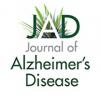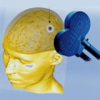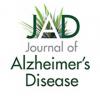27 January 2022
Preliminary Effect of Transcranial Electrical Stimulation on Protein Clearance in Patients with Alzheimer’s Disease
Alzheimer’s disease (AD) incidence is constantly increasing worldwide and patients have limited therapeutic options, that ultimately are not able to stop the cognitive decline. A recent study, published in JAD, has found preliminary results of clearance of the toxic proteins that accumulates in the brain of patients with AD after 1 month of noninvasive electrical treatment. Results were paralleled by an increase in fast oscillatory brain activity in the so-called Gamma frequency band, usually decreased in patients with AD.
24 January 2022
Less Psychosocial Problems in Patients with Dementia During Second COVID-19 Lockdown
Patients with dementia and their loved ones are now better able to adapt to the challenges of a lockdown. They reported less psychosocial problems, such as anxiety, during the second lockdown. They also experienced more social support compared to the first lockdown. This is the conclusion of a study into the psychosocial consequences of the pandemic for patients with dementia and their loved ones. The results were recently published in JAD.
10 January 2022
rTMS as a Treatment for Veterans with Cognitive Impairment and Multiple Comorbidities
Current treatments for Alzheimer’s disease are of limited effectiveness and do not halt the progression of the disease and associated cognitive decline. A study, published in JAD, shows that a novel treatment, repetitive transcranial magnetic stimulation (rTMS), may have the potential of improving the memory function in veterans with cognitive impairment due to Alzheimer’s disease.
23 December 2021
Serious Cognitive Impairment Declines 23% Among Older American Women Over a Decade
A new nationally representative study published online in JAD found an abrupt decline in the prevalence of cognitive impairment among American adults aged 65 and older compared to the same age group a decade earlier. In 2008, 12.2% of older Americans reported serious cognitive problems. In 2017, the percentage had declined to 10.0%. To put this into perspective, if the prevalence of cognitive impairment had remained at the 2008 levels, an additional 1.13 million older Americans would have experienced cognitive impairment in 2017.
6 December 2021
Having at Least a High School Degree and a Complex Job Linked to Dementia Prevention
An international research collaboration has found that high occupational complexity is associated with dementia-free survival time, highlighting the importance of maintaining cognitive stimulation throughout life for lowering the risk of dementia. The collaboration, led by UNSW Sydney’s Centre for Healthy Brain Ageing (CHeBA), analysed 10,195 older adults across seven international studies from the Cohort Studies of Memory in an International Consortium (COSMIC).
16 November 2021
2021 JAD Editorial Board Update
To keep our JAD editors, authors, and readers informed of JAD's progress and development, the journal hereby shares the 2021 editorial update and invites you to view the recording of the recent board meeting. Plus, discover the Call for Papers from our Ethics Editor Allyson Rosen: "Communicating and Using Dementia Risk Information in Light of Novel Diagnostics and Therapies."
15 November 2021
Ironing Out the Cause of Alzheimer’s Disease
University of Adelaide researchers have found important evidence supporting their theory that a deficiency of active iron in the brain is an important factor in Alzheimer’s disease. Mutations in a small number of genes can cause an inherited form of Alzheimer’s disease that afflicts people when they are relatively young. Currently, the dominant theory of what causes Alzheimer’s disease is that these mutated genes change the way a small protein fragment, Amyloid beta, is produced. Many researchers believe that Amyloid beta can build up, become toxic, and eventually destroy brain function.
14 November 2021
On Repeat: Listening to Favorite Music Improves Brain Plasticity, Cognitive Performance of Alzheimer’s Patients, Toronto Researchers Find
Researchers at the University of Toronto and Unity Health Toronto have demonstrated that repeated listening to personally meaningful music induces beneficial brain plasticity in patients with mild cognitive impairment or early Alzheimer’s disease. Changes in the brain’s neural pathways correlated with increased memory performance on neuropsychological tests, supporting the clinical potential of personalized, music-based interventions for people with dementia.
8 November 2021
Midlife Diet Could Help You Eat Your Way to a Healthy Brain
People who eat a healthy diet during middle age have a larger brain volume than those with less healthy diets new research reveals, suggesting food choices in midlife may reduce the risk of dementia and other degenerative brain disorders as we age. Helen Macpherson, PhD from Deakin University’s Institute for Physical Activity and Nutrition (IPAN) studied the eating habits and brain volumes of adults aged between 40 to 65 and found those who ate a healthy variety of foods, including plenty of vegetables, fruit, grains and good oils, had more grey matter and larger brain volume than those whose diets included less of those foods.
14 October 2021
Photobiomodulation of the Brain: Shining Light on Treating Alzheimer's and Other Neuropathological Diseases
Photobiomodulation (PBM) offers exciting opportunities for improving the life of patients with a diverse range of brain disorders. In this special collection of articles in JAD experts review progress using PBM therapy to treat dementia, Alzheimer’s disease, Parkinson’s disease, and other disorders and suggest larger clinical trials should be conducted as soon as possible.
















